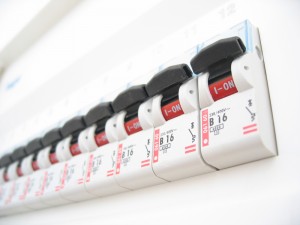
Before moving into your purchased or rented new home, it is advisable to consider the home’s energy efficiency thus lowering the price of your energy bills. This includes the ways in which you can increase the efficiency of your new home and any potentially problematic areas that could reduce efficiency. Doing this before moving into your home gives you plenty of time to make any changes you’d like, or request changes from your landlord. Considering the following important points will reduce your energy bills and increase energy efficiency:
- The Windows: Does your new home have single, double or triple glazing? If your new home has single glazing it may be more difficult to keep warm, consider having double or triple glazing installed, this will help to reduce the amount of heat you lose from your home, and as the house retains more heat, less heating is required to keep it warm. Furthermore, if you are living on a busy road or near an airport or rail track, for example, having double or triple glazed windows will help by drastically reducing the amount of noise pollution you can hear from the outside.
- Heating: Have a look and understand how your new central heating system works, if it seems very old and is not fully functional, consider having it updated. Make sure all the radiators and the boiler are fully functional, perhaps even bleed the radiators before you move in. If your new home is double glazed it may not require as much heating, keeping this in mind, ensure the use of your central heating is kept to a minimum, this will help to increase its energy efficiency.
- Insulation: Having insulation throughout your home will help the house to maintain heat by reducing the amount of heat lost from the home, thus increasing the home’s energy efficiency by lowering the use of central heating.
- Appliances: New and up-to-date appliances are often more energy efficient, therefore it may be a good idea to understand how old appliances such as cookers, fridge’s, washing machines that are in the property, are before moving in. If they are older they may be less efficient, costing more to run. If you are moving into rented accommodation, you could ask your landlord to replace some electrical appliances, however, the landlord may not always oblige to such a request. The same applies to smaller appliances also such as kettles, toasters and microwaves.
- Research Energy Providers: As rates and energy plans change all the time, it is always advisable to keep looking around to ensure you have the best deal. When moving home this is even more important. In a new home, of a different size and nature, your energy needs may be completely different and so an alternative deal may suit your requirements better and save you money.
There are of course other things you can do after you have moved into your new home, such as using energy efficient light bulbs, turning off lights and buying newer small appliances. However, ensuring you have good window glazing, heating, insulation, appliances and a competitive energy provider are the most fundamental and will dramatically reduce your energy bills and increase energy efficiency.





